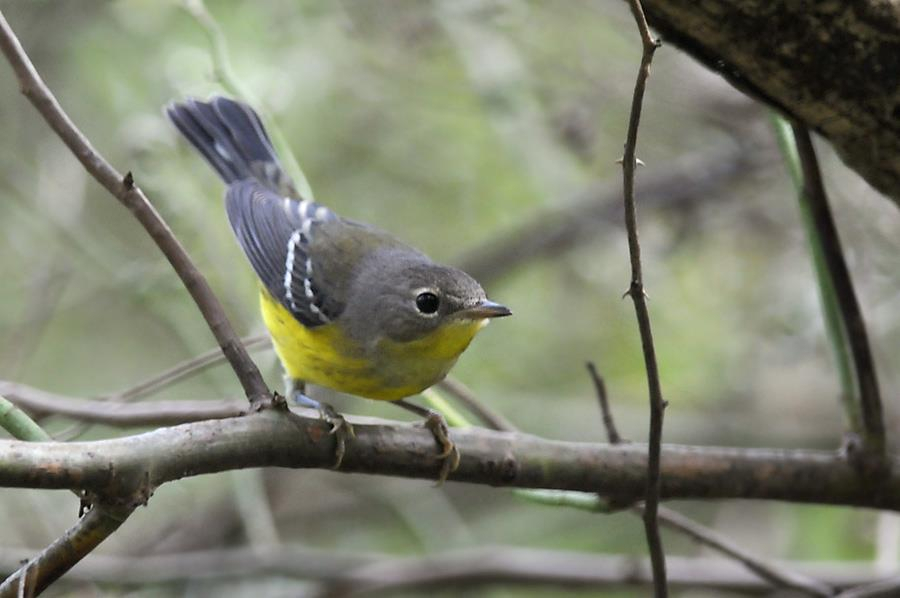
2 September 2021
The remnants of Hurricane Ida held back bird migration for two days in Pittsburgh but the logjam has broken. Today and tomorrow hold the promise of many migrating birds in southwestern Pennsylvania including mixed flocks of confusing fall warblers. Here’s a tip on how to identify them. This even works hours later at home with your reference guides.
In the field with a hard-to-identify bird, write down every feature you see as if you were going to draw the bird. Don’t forget habitat and behavior.
Details, details, details! The more details the better. If you get only a fleeting glimpse describe whatever jumps out at you.
The details will be useful when you get home and look at field guides.
Let’s try it on this bird.
At first glance (squint your eyes to see less):
- perched in a tree
- smaller than a sparrow; warbler size
- charcoal gray back
- yellow chest
- white wing bars
- plain face
- (Under the Tail is important too but we can’t see it here.)
More details:
- yellow chest has pale gray necklace with stripes
Even more details:
- broken eye ring
- throat above necklace is yellow
- some stripes on flanks
- greenish patch on back
- maybe a white patch on topside of the tail
Tools: The Warbler Guide by Tom Stephenson and Scott Whittle has free downloadable tools that show all the warblers side by side. Get them here: QuickFinder PDF (my favorite) or QuickFinder JPGs.
Practice! Use this technique in the field. See how I used it to identify another confusing fall warbler: Orange Crowned or Simply Yellow.
So what bird is pictured above?
Leave a comment with your answer and — most important! — the details that led you to that conclusion.
UPDATE, 3 Sept 2021, the answer is: Magnolia warbler
(photo by Steve Gosser)
Pale grey necklace on yellow breast and white wing bars – Magnolia Warbler.
Looks like a Magnolia Warbler. I’ve been seeing tons of them around Pittsburgh the past few weeks or so. Yellow chest with faded striping, white wing bars, eye ring, and an olive green patch on the back.
Magnolia, immature
I think it’s a Magnolia Warbler, too.